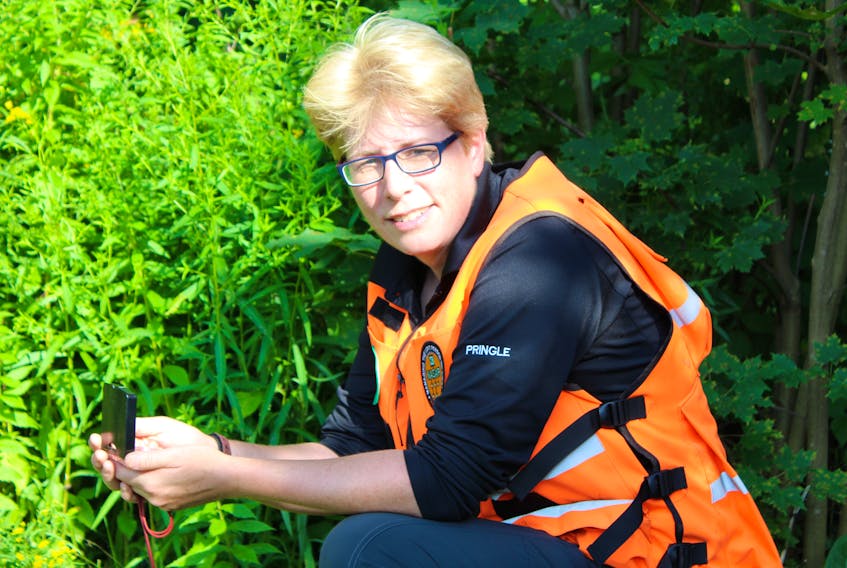ALBERTON
The P.E.I. Ground Search and Rescue team is not taking chances with ticks.
“We are definitely tick-aware,” said Heather Pringle the PEIGSAR representative on the Search and Rescue Volunteer Association of Canada. There is one particular type of black-legged tick, formerly called the deer tick, that carries the bacteria that can cause the debilitating Lyme disease. The absence of deer in P.E.I. is not a saving grace, she stressed.
Pringle, who is a veterinarian and teacher, knows that Lyme disease has been found in pets in P.E.I., including pets that had not been out-of-province, so she knows the ticks that cause the disease are here.
“Certainly, every time after we do a search we recommend to all of our searches that they do a self-check,” said Pringle. She is unaware of any of the volunteers every finding a tick and suggests that, if any were found, the number was very low.
Of even greater concern, though is when volunteers participate in training exercises out of province. Ticks, including the variety that causes Lyme disease, are much more prevalent in Nova Scotia.Click here for Chronicle Herald story on ticks affecting NS searchers
The Chronicle Herald reported last week about the heightened concern in Nova Scotia whete three members of the Lunenburg County Ground Search and Rescue team were diagnosed with Lyme disease after participating in a missing-person search last summer. One of the infected searchers described the precautions they had taken, including applying Deet, tying pant cuffs to their boots and buttoning their shirt cuffs.
Pringle said P.E.I. has between 90 and 100 ground search and rescue volunteers, So far, she does not think the risk of contracting Lyme disease has deterred any potential volunteers from joining the organization.
“But, whatever starts in our neighbouring provinces we know that it will spread to P.E.I.,” she described the likelihood of the level of risk increasing. “Our (tick) numbers are nowhere near Nova Scotia but it’s felt it’s going to increase quickly, soon.”
She noted ticks can be carried on birds. “if those ticks are carrying the disease, the bacteria that causes Lyme disease, that could increase the prevalence by a lot,” she stressed.









